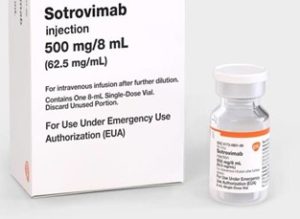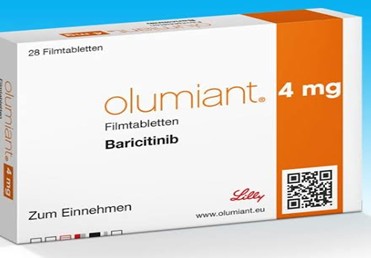The first drug, Baricitinib also known as Olumiant, is strongly recommended for patients with severe or critical cases of the COVID-19 disease. It is a type of drug called Janus kinase (JAK) inhibitors that act by inhibiting the overstimulation of the immune system. It inhibits the viral entry into the pneumocytes and prevents cytokine storm in patients with SARS-CoV-2 infection. Baricitinib is an oral medication that is popularly used in the treatment of rheumatoid arthritis. It provides an alternative to other arthritis drugs called Interleukin-6 receptor blockers, recommended by WHO in July 2021. According to the WHO, it should be co-administered with corticosteroids as such combination was associated with greater improvement in pulmonary function when compared to monotherapy. In the fight against the global pandemic, Covid-19, all hands have been on deck to develop a drug that can successfully contain the viral disease. In recent times, many pharmacological agents have been introduced by different pharmaceutical companies with shreds of evidence and proof of efficacies and test proofs. Amid vaccination, WHO has recommended two new drugs for COVID-19, which have yet provided more treatment options for the disease. The extent to which these drugs will go in saving lives solely depend on the availability and affordability they will be.
The second drug, Sotrovimab, is a monoclonal antibody drug that has been conditionally recommended by WHO for treating mild or moderate COVID-19 disease in patients who are at high risk of hospitalization. This includes elderly patients,  immunocompromised, those having underlying conditions like diabetes, hypertension, and obesity, and those that have not been vaccinated. Sotrovimab is an alternative drug to Casirivimab-Imdevimab, a monoclonal antibody cocktail recommended by WHO in September 2021. Studies are ongoing to assess the effectiveness of these monoclonal antibodies against Omicron but early laboratory studies show that Sotrovimab retains its activity. The panel of experts developing the guidelines also looked at two other drugs for severe and critical COVID-19: Ruxolitinib and Tofacitinib.
immunocompromised, those having underlying conditions like diabetes, hypertension, and obesity, and those that have not been vaccinated. Sotrovimab is an alternative drug to Casirivimab-Imdevimab, a monoclonal antibody cocktail recommended by WHO in September 2021. Studies are ongoing to assess the effectiveness of these monoclonal antibodies against Omicron but early laboratory studies show that Sotrovimab retains its activity. The panel of experts developing the guidelines also looked at two other drugs for severe and critical COVID-19: Ruxolitinib and Tofacitinib.
Considering the uncertain effects of these new drugs, the WHO has made a conditional recommendation for its use. Today’s recommendations, the eighth update of the WHO Treatment and COVID-19 Guidelines, are based on data from seven trials involving more than 4,000 patients with mild, severe and severe COVID-19. WHO is negotiating with manufacturers to ensure global supply opportunities and equitable and sustainable access to newly recommended therapeutics. Therapeutics’ Access to COVID19 Tools Accelerator (ACTA) component is working with pharmaceutical companies to find comprehensive access plans for low- and middle-income countries and ensure that these therapies can be rapidly deployed everywhere, not just in wealthy countries. ACTA is also looking to expand the scope of its licenses to make products more accessible. Two recently recommended drugs, baricitinib and Sotrovimab, have been invited to participate in the WHO pre-screening evaluating the quality, efficacy and safety of priority health products to increase access in low-income countries.
The Covid-19 global pandemic is nowhere near over as new variants are likely to emerge owing to various drug-resistant and poor disease control. Vaccines may be less effective in preventing the transmission but surely it is exceptionally effective in preventing death and complications.

